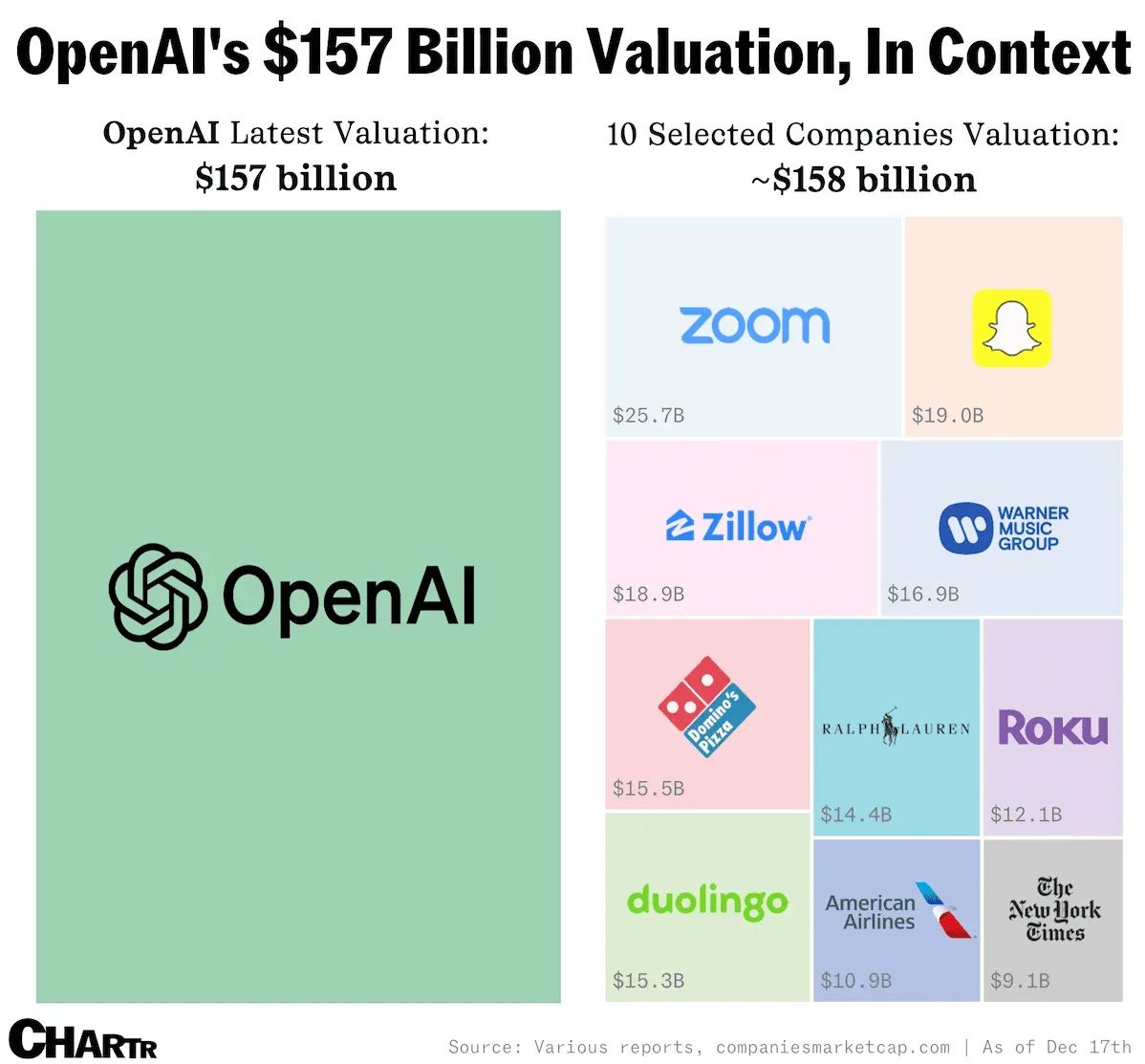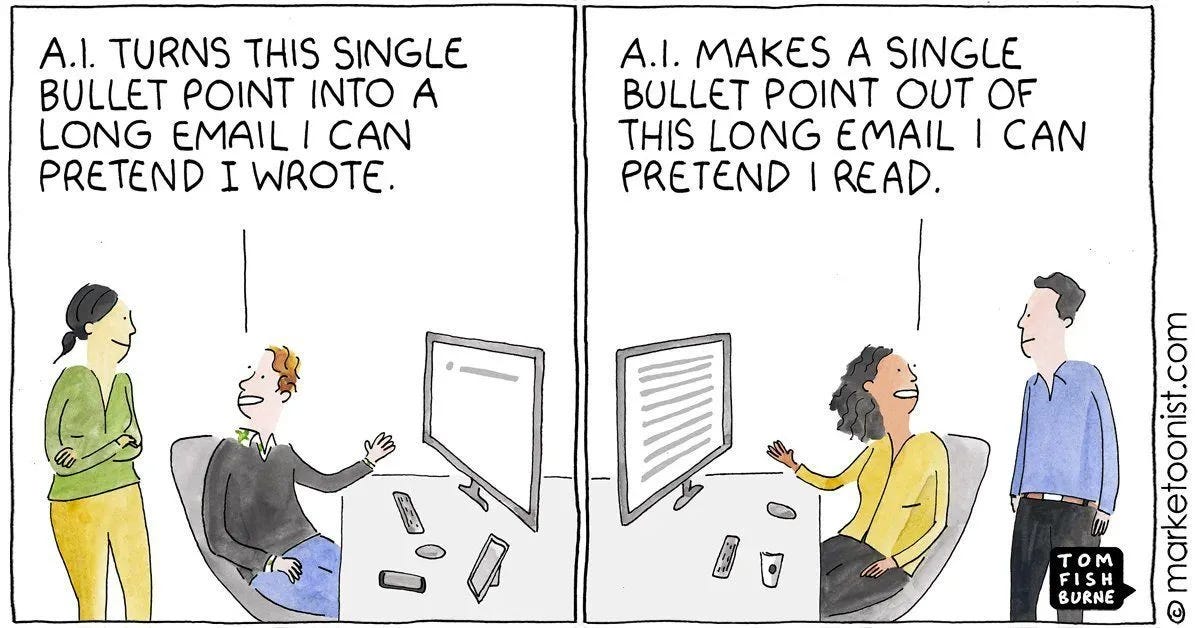[AI News] OpenAI’s AGI Ambitions, NVIDIA’s AI Hardware Revolution, xAI’s Grok 3 Poised for Breakthrough
OpenAI's Altman: Confident on AGI Path, Predicts AI Agents to 'Join Workforce' in 2025
OpenAI's Reflective Look Sam Altman shared thoughts on OpenAI's journey, highlighting the rapid transition from research lab to AI powerhouse that's reshaping technology.
Transformative growth: ChatGPT evolved from an experimental "Chat With GPT-3.5" to driving unprecedented growth, expanding from 100 million to over 300 million weekly active users.
Company evolution: OpenAI transformed from a pure research organization to a product company, requiring massive capital and rapid scaling that felt "like a decade at a normal company."
Future vision: They're confident about building AGI and predict AI agents will "join the workforce" in 2025, materially changing company outputs.
However, the journey wasn't without challenges, including Altman's brief dismissal and return, which he describes as "a big failure of governance by well-meaning people." The company emerged stronger with improved governance structures and renewed focus on their mission.
Why it Matters: OpenAI's trajectory from research lab to AI pioneer demonstrates the accelerating pace of AI development. Their confident prediction about AI agents in the workforce by 2025 suggests we're on the cusp of a major shift in how businesses operate. Their emphasis on safety and gradual deployment while pursuing superintelligence highlights the delicate balance between innovation and responsible development. → Read Sam’s full post here.
NVIDIA's Huang: AI's Physical Leap, Predicts Robotics Revolution at CES 2025
NVIDIA's founder and CEO, Jensen Huang, delivered a keynote at CES 2025, showcasing the company's latest innovations and providing a bold vision for the future of AI and computing.
AI and Robotics Surge: Huang emphasized the progression from perception and generative AI to "physical AI," predicting significant breakthroughs in robotics, including agentic AI, humanoid robots, and self-driving vehicles. He introduced NVIDIA's Cosmos platform, which aims to simulate real-world conditions for AI training, making robotic development more cost-effective and rapid.
Hardware and Software Innovations: The keynote highlighted the new GeForce RTX 50 Series, particularly the RTX 5090, built on the Blackwell architecture, promising substantial performance boosts for gaming, creation, and enterprise applications. Additionally, the GB10 AI superchip was unveiled, designed to power advanced AI applications and humanoid robotics.
NVIDIA Revealed 'Project Digits': Huang announced 'Project Digits', a $3,000 personal computer powered by the GB10 Superchip, claiming it to be 1000x more powerful than the average laptop. This device is aimed at developers, researchers, and students to run large AI models locally, providing a bridge between desktop and cloud-based AI development.
Open Licensing and Collaboration: NVIDIA announced that their Cosmos platform is open-licensed, available on GitHub, aiming to spur innovation across the robotics and industrial AI sectors, similar to the impact of previous AI models. Partnerships with companies like Kion, Accenture, and Toyota were highlighted for optimizing supply chains and advancing autonomous vehicle technology.
Market Impact and Expectations: Huang's address comes at a time when NVIDIA's market value and stock performance are at record highs, with analysts viewing the keynote as a potential growth catalyst, especially with the introduction of new GPU lines and AI technologies.
Why it Matters: NVIDIA's keynote underscores its pivotal role in the AI and computing landscape, suggesting a future where AI not only enhances digital experiences but also physically interacts with the world through advanced robotics. The open-licensing of crucial technology platforms like Cosmos could democratize AI development, potentially accelerating industry-wide innovation. This vision positions NVIDIA at the forefront of a transformative era in technology, where AI agents and robotics become integral parts of the workforce and daily life. → Watch Jensen Huang's full keynote here.
xAI's Musk: Grok 3 Set for Massive Leap, Predicts AI to Outpace Current Giants
Elon Musk, founder of xAI, has stirred considerable excitement with his announcement regarding the upcoming Grok 3, signaling a monumental advancement in AI technology.
Anticipation for Grok 3: With pretraining now complete, Grok 3 promises to utilize 10X more computational power than its predecessor, Grok 2, setting the stage for a significant leap in AI capabilities. The community is buzzing with anticipation, expecting Grok 3 to offer enhanced processing speeds, complex reasoning, and potentially surpass current industry leaders like OpenAI and Anthropic in AI performance.
Massive GPU Cluster in Tennessee: To facilitate this leap, xAI has established the world's largest AI supercomputer in Memphis, Tennessee, equipped with 100,000 NVIDIA Hopper GPUs. This colossal setup was achieved using NVIDIA's Spectrum-X Ethernet networking platform, showcasing a monumental scale in AI infrastructure.
Unprecedented Speed: NVIDIA's CEO, Jensen Huang, highlighted the extraordinary pace at which xAI assembled this GPU cluster, stating it was done in just 19 days, a feat that typically takes others a year. This rapid deployment underscores xAI's aggressive approach to AI development.
Impact on the AI Landscape: The development of Grok 3 and the scale of the GPU cluster in Tennessee suggest xAI is positioning itself to potentially outpace current giants in the AI space. Musk's vision for Grok 3 goes beyond current capabilities, aiming to push the boundaries of what AI can achieve, potentially leading in areas where OpenAI and Anthropic currently lead due to their bureaucratic constraints.
Why it Matters: The anticipation around Grok 3 and the unprecedented speed of setting up such a massive GPU infrastructure highlight xAI's ambition to redefine the AI landscape. With Grok 3, xAI is not just aiming to catch up but to leapfrog over existing AI technologies, potentially altering the dynamics of AI innovation and competition. This move could signify a shift where smaller, agile companies like xAI challenge the dominance of larger, more established players, emphasizing innovation speed over bureaucratic efficiency. → Read more here.
Quick AI Headlines ⚡
AI Agents Enhance Efficiency Across Sectors: Businesses are increasingly integrating AI agents to improve operations in drug discovery, customer service, and more. Companies like Johnson & Johnson use AI for optimizing chemical synthesis, while Moody's deploys multi-agent systems for financial analysis. EBay leverages AI for coding and marketing, and Deutsche Telekom offers an AI-powered support agent for employees. Cosentino employs AI agents as "digital workers" to enhance customer service, demonstrating how AI can streamline complex tasks while highlighting the need for careful oversight to prevent cybersecurity risks and ensure accuracy.
Salesforce Halts Engineering Hires Due to AI Productivity Boost: Marc Benioff announces that Salesforce will not hire new software engineers in 2025, citing a 30% productivity increase thanks to AI tools like Agentforce. The focus on Agentforce underscores its growing significance at Salesforce, prompting shifts in workforce composition, notably an increase in sales staff to maximize AI's value proposition. This decision reflects strategic changes within Salesforce amidst past staff reductions, with implications for the company's direction and employee dynamics.
FDA Releases Draft Guidance for AI-Enabled Medical Devices: The FDA has issued comprehensive draft guidance for developers of AI-enabled medical devices, detailing strategies to ensure safety and mitigate bias. This guidance provides recommendations for device development and ongoing lifecycle management, reflecting the FDA's commitment to transparency and innovation in the AI medical field. Public comments are invited until April 7, 2025, to refine the guidance further.
Trump Unveils $20B Data Center Initiative: President-elect Donald Trump announced a plan for new data centers across the US, led by Emirati businessman Hussain Sajwani with a $20 billion investment. The centers aim to boost AI and cloud technology infrastructure, marking significant enhancement in the US tech landscape, while building on existing economic initiatives.
Online Holiday Spending Increases by 9% with AI Assistance: Adobe reports an 8.7% rise in online holiday spending, driven by significant discounts and the use of AI chatbots. From November to December, sales reached $241.4 billion, reflecting a shift towards strategic purchasing during key sales events. Notably, AI chatbots boosted retail site traffic by 1,300%, highlighting their growing influence in e-commerce. This rise in online shopping, particularly in groceries and cosmetics, underscores the transformative role of AI in consumer behavior.
AI Spear Phishing Achieves High Success Rates: Study reveals effectiveness of AI in spear phishing campaigns, demonstrating over 50% click-through rates with AI-generated emails. Utilizing models like GPT-4o and Claude 3.5 Sonnet, these attacks are cheaper and faster than manual methods, significantly enhancing phishing efficiency. While AI improves detection capabilities, it still struggles with certain phishing recognition, posing an ongoing challenge for cybersecurity defenses. The study underlines the need for robust AI-developed countermeasures to combat evolving phishing techniques.
Nvidia Invests in Robotics for Future Growth Amid AI Chip Competition: Nvidia focuses on robotics as a key growth area, preparing to launch its Jetson Thor computers for humanoid robots in 2025. As competition in AI chips intensifies, Nvidia positions itself as a leader in the anticipated robotics revolution, offering comprehensive solutions from AI training software to hardware integration. This emphasis on "physical AI" aligns with technological advances in generative AI and simulated training environments. Despite current market challenges, Nvidia's strategy includes significant investments and partnerships, aiming to capitalize on robotics' growing market potential.
Anthropic Eyes $2 Billion in Funding at $60 Billion Valuation: Anthropic, an AI startup rivaling OpenAI, is close to securing $2 billion in new funding from Lightspeed Venture Partners, elevating its valuation to $60 billion. This surge places Anthropic among the top five most valuable US startups alongside SpaceX and Stripe. Founded in 2021 by ex-OpenAI employees, the company emphasizes robust safety testing for its AI tools, including its Claude chatbot. Alongside significant backing from Amazon and Google, Anthropic's rising valuation reflects the growing investor enthusiasm for AI's transformative potential.
AI Revolutionizes Internet Search Experience: Generative AI is transforming internet search, signaling the end of traditional search methods. With conversational search engines from Google, OpenAI, and others, users now receive direct answers rather than navigating lists of links. This shift, driven by AI models like Google's Gemini, allows for more complex, natural queries. However, the change raises concerns about the accuracy of AI-generated content and its impact on web traffic and publishing. The technology's potential to reshape information access and user interaction is substantial, but it also poses challenges for maintaining reliability and trust.
Google Forms Team to Develop AI World Simulation Models: Google DeepMind has established a new team, led by Tim Brooks, to focus on AI models capable of simulating the physical world. This initiative aims to advance Google's AI technologies like Gemini, Veo, and Genie. These models promise applications in visual reasoning, embodied agent planning, and interactive media, potentially facilitating advancements toward artificial general intelligence (AGI). Despite optimism, there are concerns over the impact on creative jobs and copyright issues related to training data sources.
Chart of the Week 📊
Content I Like 👀
Maxwell, a SpaceX software engineer, showcases Dispatcher, his innovative AI-powered, voice-controlled drone project. Combining user voice commands, large language models, and real-time processing, the drone performs tasks like tracking vehicles and inspecting locations. The system integrates a user interface, cloud-based AI, and on-board processing for low-latency operations. Despite hardware and regulatory challenges, Maxwell envisions creating a personal flying assistant. He invites collaboration to further develop this promising project, which has potential applications in emergency response, deliveries, and autonomous inspections.
AI Humor
Classic!
Thats all for me this week. See you next time.
-Manny








